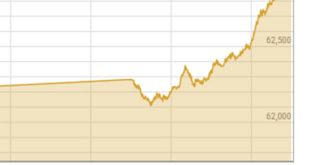Islamabad: As part of a strict implementation plan with the International Monetary Fund (IMF), the government has increased the number of utility price shocks. This plan includes raising gas prices by more than 53%, reviving the general sales tax on petroleum items, and removing further subsidies.
In addition to ensuring that electronically filed tax and asset details of grade 17 to 22 officers, members of the cabinet, and members of the parliament be made available to “authorized entities” — not the public—Pakistan has committed to ensuring that, in addition to the globally acceptable comprehensive review of the anti-corruption institutional framework, particularly the National Accountability Bureau (NAB), the IMF released a detailed 112-page country report on Friday, detailing the completion of the seventh and eighth reviews of the extended fund facility (EFF).
In addition, the authorities committed to privatizing two LNG-based power plants, a bank, and a development finance institution this year. They also set up a central monitoring unit in the finance ministry right away to oversee the financial management of other SOEs and enhance their performance.
Along with clearing the tariff backlog, the government also pledged to respect the power regulator Nepra’s power tariff determinations and to promptly permit the uninterrupted implementation of all revisions to the annual base tariff, quarterly adjustments, and fuel price adjustments.
Pakistan would remove more tax breaks, privatize four state-owned businesses, and get MPs’ asset information.
To contain rising circular debt, which stood at Rs2.253 trillion by the end of June even after Rs564 billion in budgetary payments, the government would also stagger capacity payments to power producers, either through renegotiated power-purchase agreements or extending the debt repayment duration.
The IMF obtained a contingency plan from the government to make up for slippages after determining that the province’s cash surplus pledges of Rs 750 billion and the petroleum development levy (PDL) goal of Rs 855 billion posed significant risks given the political climate, significantly ahead of an election year.
The Fund also highlighted the previous government’s violation of over a dozen structural benchmarks, performance criteria, and indicative targets of the program. It also implicitly approved the phasing out of import curbs and exchange controls as soon as possible. However, it insisted on tighter fiscal and monetary policies, even with a total return to a market-based exchange rate.
See also: A Hollow Triumph.
To earn an expected income of Rs666 billion, the government committed to the IMF to collect around Rs786 billion from gas customers throughout the current year. This amount is almost Rs120 billion, more significant than the 45 percent rise in gas prices established by the Oil and Gas Regulatory Authority (Ogra) for June.
To reduce the circular debt in the gas industry, which the government estimated to be worth Rs1.230 trillion by the end of March, the gas rate would increase by 53 percent.
The undertaking provided by Finance Minister Miftah Ismail to the IMF states that, in light of Ogra’s determination, “we are now in the process of implementing more than the prescribed increase in consumer gas prices.” In addition to pledging to rationalize gas subsidies and implement structural pricing changes through the weighted average cost of gas, Ismail also promised a mechanism for regular updates of the end-user gas price.
According to the IMF report, the government has promised to take several necessary steps. These include setting up a system for high-level public officials to declare their assets, such as federal cabinet members (new end-March SB, reset to end-September), and putting out a full review of the anti-corruption institutional framework (NAB) by a task force made up of civil society groups and independent experts with international experience (new end-January 2).
“We will issue regulations to establish an electronic asset declaration system that is comprehensive (i.e., covering assets beneficially owned or located abroad, including those of spouses, children, and benzamides), centrally held with the Federal Board of Revenue, covering federal civil servants of Basic Pay Scale (BPS) 17 to 22, accessible to entities authorized by law (including banks for the limited purposes of conducting customer due diligence as required for the provision of banking services), and effectively verified,” the target state. The goal is to advance transparency, accountability, and integrity in the public sector.
Additionally, the law ministry will form a task force and work with the finance ministry, with input and participation from credible independent experts with international experience and civil society organizations. The task force will finish and publish a thorough review of the institutional framework of anti-corruption institutions, improving their impartiality and efficiency in investigating and prosecuting corruption cases. The task force will also recommend necessary legislative amendments (new end-January 2023 SB).
In addition, the government will support reporting agencies and financial institutions in strengthening their ability to detect politically exposed individuals (PEPs) and implement more stringent due diligence procedures.
According to the IMF, the approved budget, together with the first rollout of PDL hikes and electricity pricing adjustments, sent a clear message about the authorities’ intent to carry out their promises.
Read: Beyond the IMF accord.
The government’s ability to raise the estimated revenue from several new taxes and staggered PDL implementation (with 90% of revenue generated in the last three quarters), as well as the province’s commitment to delivering the agreed-upon historically high surpluses and the significant containment of current spending relative to GDP in a pre-election year, posed significant fiscal risks to the program.
The administration has pledged to implement contingency plans as soon as there are indications of fiscal program underperformance in light of these concerns.
The government has committed to initiating contingency measures as needed, such as immediately increasing fuel GST in advance of reaching the standard 17 rate and further streamlining GST exemptions, including those on sugary drinks and other unwarranted exemptions, such as those that benefit exporters in financing facilities and energy prices. This will happen as soon as monthly data show signs of underperformance against program revenue targets (e.g. if data for an early month within a quarter suggest risks to quarterly performance).
According to the article, officials collaborated with the World Bank to rationalize subsidies for major agricultural users using tube wells. They also pledged to provide a comprehensive reform plan to the cabinet by November of this year. To enhance the efficiency and governance of electricity distribution corporations (Discos), the government has also pledged to pursue other changes.
 Pakish News We are an interactive media group that here a purpose to update users with the latest information. Our mission is to give you knowledge not only about your surroundings. We will also update you around the Globe.
Pakish News We are an interactive media group that here a purpose to update users with the latest information. Our mission is to give you knowledge not only about your surroundings. We will also update you around the Globe.



